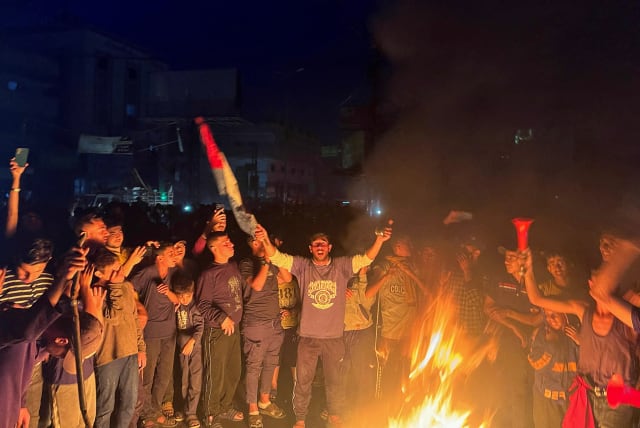US and Qatar are pressing Hamas and Israel on making a deal - source

United States and Qatari officials are working to revive talks between Israel and Hamas for a ceasefire deal after a recent halt. Hamas has proposed changes to the agreement.
United States and Qatari officials are pressing Israel and Hamas to make a deal, a US source told The Jerusalem Post on Monday, after the terror group accepted a ceasefire agreement just as it seemed that the talks had collapsed in Cairo.
"Essentially, the talks fell through, they were on life support, which is what prompted [CIA Director] Bill Burns to get on a plane and go to Qatar,” the source said.
"Both the Americans and the Qataris, in a display of shared responsibility, engaged in heavy pressure and diplomacy, striving to breathe life back into the framework of an agreement."
The American source further emphasized that the situation was at a very delicate and sensitive point in time, underscoring the mutual understanding of the situation.
"The Americans and the Qataris are keeping pressure on both sides to build the framework that has been agreed upon.”
Israel-Hamas hostage agreement
At issue has been a three-phased agreement, mediated by Egypt and Qatar, by which Hamas would release the remaining 132 hostages, beginning with 33 of the captives over the first 42 days.
That element of the deal has been consistent and accepted by both parties.
Israel and Hamas have been at odds over the terror groups' demands that the agreement include an end to the war rather than a pause in the hostilities, a stance which has impacted the second and third phases of the agreement.
Hamas on Monday agreed to a new deal, which differed in some of its details from the one that Israel had approved in the past.
Qatar Foreign Ministry spokesperson Mohammed Al-Ansari said that Hamas’s latest proposal which Hamas had approved was positive.
A Qatari delegation is expected to head to Egypt on Tuesday to join the third-party negotiation.
In a statement to the Qatar News Agency, Ansari said he hoped the talks would culminate in an immediate and permanent ceasefire, alongside the release of the hostages and an increase in humanitarian aid for Gaza.
Israel has been skeptical of the proposal, which has elements it already believes it can not agree to, fearing that this is just a cynical exercise to create a narrative by which Jerusalem is to blame for the failure of the negotiations.
It has also feared that Hamas is playing for time, in an attempt to halt its military operation in Rafah, which is now in its early stages.
Jerusalem Post Store
`; document.getElementById("linkPremium").innerHTML = cont; var divWithLink = document.getElementById("premium-link"); if (divWithLink !== null && divWithLink !== 'undefined') { divWithLink.style.border = "solid 1px #cb0f3e"; divWithLink.style.textAlign = "center"; divWithLink.style.marginBottom = "15px"; divWithLink.style.marginTop = "15px"; divWithLink.style.width = "100%"; divWithLink.style.backgroundColor = "#122952"; divWithLink.style.color = "#ffffff"; divWithLink.style.lineHeight = "1.5"; } } (function (v, i) { });

